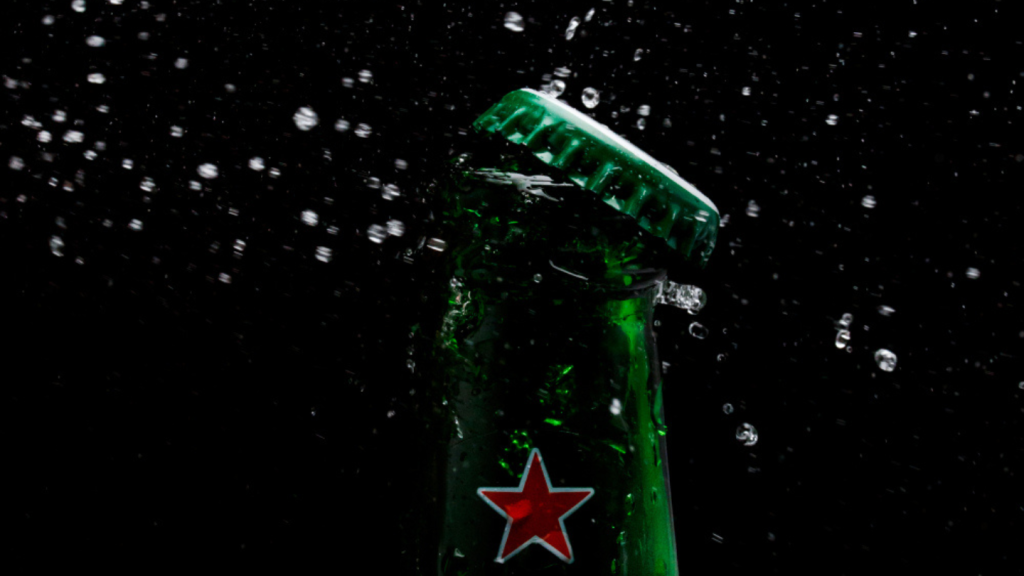 Following the publication of a discussion document by the UK’s Food Standards Authority, the issue of the negative effects of sweetened soft drinks on children’s health is once again in the news. Olly Wehring examines the response to the FSA document and asks whether a proactive industry response is now necessary.
Following the publication of a discussion document by the UK’s Food Standards Authority, the issue of the negative effects of sweetened soft drinks on children’s health is once again in the news. Olly Wehring examines the response to the FSA document and asks whether a proactive industry response is now necessary.
Pressure on the soft drinks industry over the negative effects of sweet or fatty foods and drinks on children’s health has intensified over the past week following the publication of a discussion paper by the UK’s Food Standards Agency detailing, among other proposals, possible controls on advertising and labelling.
While the FSA paper dealt with a wide range of possible measures, it is the suggestion that controls on advertising and labelling might be introduced which will have worried the soft drinks industry the most.
In addition to banning advertising by food and drinks companies which targets young children, the FSA could also recommend outlawing the use of celebrities to promote products. The use by major companies such as Coca-Cola and Pepsi of pop stars and footballers as brand sponsors would certainly be affected.
The publication of this document follows the release of findings of a research project into the effect advertising has on children. In September, the Agency published “Does Food Promotion Influence Children? A Systematic Review of the Evidence”, by Professor Gerard Hastings from the University of Strathclyde. The review concluded that advertising to children does have an effect on their food preferences, purchase behaviour and consumption.
The one positive for the industry, however, is that this is a discussion document. The FSA wants to open the issue to debate before deciding what recommendations it will put before the Government next year.
How well do you really know your competitors?
Access the most comprehensive Company Profiles on the market, powered by GlobalData. Save hours of research. Gain competitive edge.

Thank you!
Your download email will arrive shortly
Not ready to buy yet? Download a free sample
We are confident about the unique quality of our Company Profiles. However, we want you to make the most beneficial decision for your business, so we offer a free sample that you can download by submitting the below form
By GlobalDataThere is a clear invitation for soft drinks companies to involve themselves in a constructive debate with authorities such as the FSA. It will also necessitate dialogue with some of the organisations who have been most critical, not only of the products which food and drinks companies are selling but the way in which they are marketed to children.
There has been every sign in the UK, the wider EU and the US in recent months that this debate is notching up a few gears. Snack food companies and soft drinks producers are facing up to the reality that artful PR will only go so far in deflecting negative public opinion. Rather more substantial action may soon become necessary.
So far, the response from the industry has been a little muted to say the least. One hopes that this is because something more substantial is being prepared rather than the industry hoping that if it keeps its head down, things will die down. That is unlikely to happen.
One initial response has been to cast some doubt over the Strathclyde report itself. Claudia Camozzi, public affairs executive for the Food Advertising Unit, said: “The Strathclyde report looked almost entirely at TV advertising, and used sources which are over 20 years old and from the US.”
While Camozzi welcomed the need to “get the public’s thought-juices flowing,” she was not convinced that the research was conclusive enough at this early stage. “It (the Strathclyde report) is not enough on its own to base policy on,” she told Just-drinks. This view was largely echoed by a spokesperson for the British Soft Drinks Association.
Coca-Cola’s response bore more of the hallmarks of unreconstructed PR. The company’s suggestion that it did not target advertising at children will have raised a few eyebrows. “We believe we are very responsible already in our marketing campaigns,” a Coca-Cola spokesperson told the Daily Telegraph. “We don’t target under-12s in our advertising and the marketing for our products for two- to five-year-olds is aimed at parents.”
PepsiCo said it was not prepared to make any comment on the FSA document until after it had appeared before the Health Select Committee Inquiry 27 November. Cadbury Schweppes felt it was unable to comment because it did not market soft drinks in the UK.
It may be that classic PR rebuttals or trying to undermine research being cited will give the soft drinks industry some breathing space but given the mounting concern and the rhetoric coming from organisations campaigning for action in this area, any respite will be short-lived.
Public awareness of what is healthy and what isn’t becomes ever more prevalent in UK society. As Sir John Krebs, chair of the FSA, points out: “We already know that many children’s diets contain more fat, sugar and salt than is recommended. We know that the level of obesity in children is rising and, in the words of the Chief Medical Officer, is a health time bomb that could explode.” It is estimated that by 2010 this time bomb could cost up to £3.6 billion a year. “Doing nothing is not an option,” says Krebs.
When it comes to pre-emptive action before the decisions are announced next year, the soft drinks industry may wish to take a look at what Cadbury Schweppes intends to do with its chocolate bars. Last week the company announced that it is considering putting notices on its products bars advising their customers to maintain a healthy diet, despite there being no compulsion on their part to do so.
Similar proactive steps from both food and drinks companies may have to be seriously considered. But so far, the industry appears to have settled for demonstrating a willingness to involve itself in discussions.
A joint statement from six industry bodies, including the Food and Drink Federation and the Food Advertising Unit, said: “We welcome the FSA’s recent discussion paper on possible options regarding the promotion and advertising of foods and we look forward to taking part in this most important initiative. The manufacturing, retail, hospitality and farming sectors will work together with the advertising industry to be part of the solution to the problems of obesity and other food and health related issues. Only by working together, industry, Government, health professionals and educators, can we move forward to practical, realistic solutions which help consumers.”
While the soft drink industry gears itself for what could be the most radical changes it has ever seen, at least it has staked its claim to wanting to be part of the process. Echoing in their ears will be the adage “if you’re not part of the solution, you’re part of the problem.” The coming months will show how seriously the industry takes the problem and how committed it is to finding the solutions.






